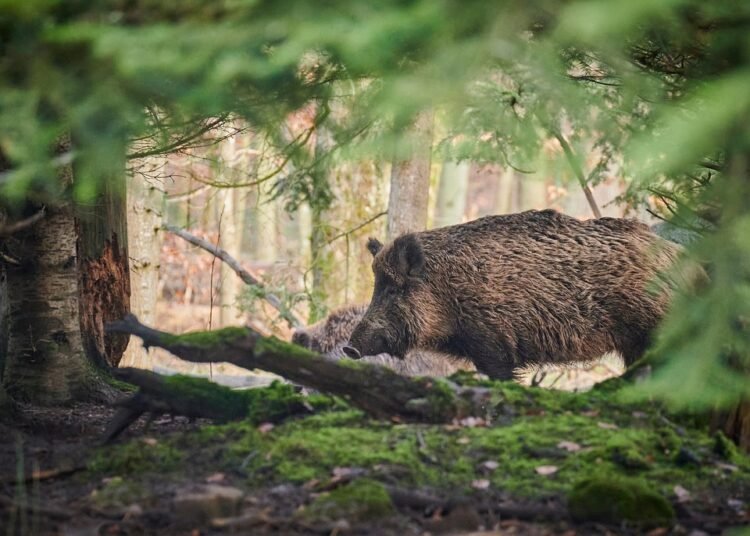Surviving the Charge: How to Handle a Wild Boar Encounter
Encountering a wild boar can be a frightening experience, especially if the animal feels threatened and charges at you. Knowing how to handle such a situation can mean the difference between escaping unscathed or suffering serious injuries. In this article, we will provide you with valuable tips on how to survive a wild boar encounter.
Understanding Wild Boars
Wild boars, also known as feral pigs, are highly intelligent and powerful animals. They are omnivorous and can be found in a variety of habitats, including forests, grasslands, and agricultural areas. Wild boars have a strong sense of smell and are known for their aggressive behavior when they feel threatened or cornered.
Wild boars can weigh up to 300 pounds and have sharp tusks that they use for self-defense and to establish dominance within their social hierarchy. When a wild boar charges at you, it can reach speeds of up to 30 miles per hour, making it a formidable opponent.
Stay Calm and Assess the Situation
If you encounter a wild boar, it is important to stay calm and not panic. Assess the situation and determine the best course of action. Do not make sudden movements or loud noises that may startle the animal further.
Wild boars are generally more afraid of humans than we are of them. In most cases, they will try to avoid confrontation if given the chance. However, if a wild boar feels threatened or cornered, it may charge at you as a defensive mechanism.
Back Away Slowly
If a wild boar charges at you, the best course of action is to back away slowly while facing the animal. Do not turn your back on the boar, as this may trigger a more aggressive response. Keep your eyes on the boar and maintain a safe distance while moving away from the animal.
Wild boars have poor eyesight but a keen sense of smell. By backing away slowly, you give the boar the opportunity to assess the situation and hopefully retreat without resorting to violence.
Do Not Run
Running away from a wild boar is the worst thing you can do in this situation. Wild boars are fast runners and can easily outrun humans. If you run, you may trigger the boar’s predatory instincts and encourage it to chase after you.
Instead of running, back away slowly and calmly. If the boar continues to approach you, try to find a tree or large object to put between you and the animal. Climbing a tree is not recommended, as wild boars are excellent climbers and can easily follow you up.
Make Yourself Look Bigger
If a wild boar continues to approach you despite your attempts to back away, try to make yourself look bigger and more intimidating. Raise your arms above your head, stand tall, and make loud noises to scare off the boar.
Wild boars are more likely to back off if they perceive you as a threat. By making yourself look bigger and more aggressive, you may be able to deter the boar from charging at you.
Use Pepper Spray or a Stick
If a wild boar is charging at you and you have no other option, you can use pepper spray or a stick to defend yourself. Pepper spray is a non-lethal deterrent that can temporarily incapacitate the boar and give you the opportunity to escape.
If you do not have pepper spray, a stick or large object can be used to keep the boar at a safe distance. Do not attempt to physically harm the boar, as this may provoke a more aggressive response.
Seek Medical Attention
If you are injured during a wild boar encounter, seek medical attention immediately. Wild boars can transmit diseases such as brucellosis and leptospirosis through their saliva and feces, so it is important to receive prompt medical treatment to prevent infection.
Even if your injuries seem minor, it is still advisable to see a healthcare professional to assess the extent of the damage and receive proper care. Remember to clean and disinfect any wounds to prevent infection.
Preventing Wild Boar Encounters
While wild boar encounters are rare, there are steps you can take to reduce the likelihood of encountering these animals in the wild. Avoid leaving food out in the open, as this can attract wild boars and other wildlife to your campsite or hiking trail.
Keep a safe distance from wild boars if you see them in the wild. Do not approach or attempt to feed them, as this can habituate the animals to humans and lead to more frequent encounters.
Conclusion
Encountering a wild boar can be a scary experience, but knowing how to handle the situation can help you stay safe and avoid serious injuries. By staying calm, backing away slowly, and making yourself look bigger, you can increase your chances of surviving a wild boar encounter.
Remember to seek medical attention if you are injured during a wild boar encounter and take steps to prevent future encounters by practicing proper wildlife safety measures. With these tips in mind, you can confidently explore the great outdoors without fear of wild boars.
Stay safe and enjoy your adventures in nature!







